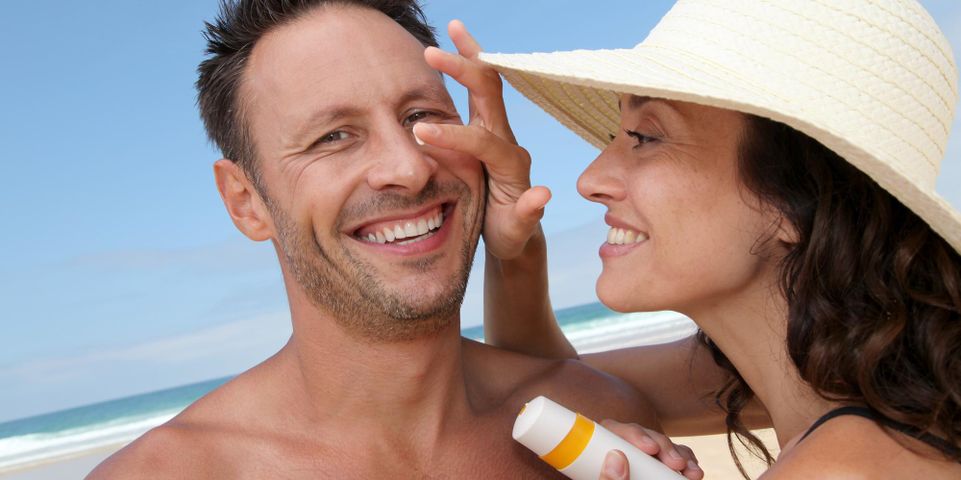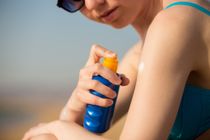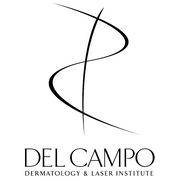How to Select the Right Sunscreen

For Miami residents, getting out in the sun is a favorite pastime all year long. But while getting outdoors is fun, exposing yourself to UV rays can increase your risk for skin cancer. That’s why the American Academy of Dermatology (AAD) urges all people to apply sunscreen before heading outside. Here are five factors dermatologists recommend considering when shopping for sunscreen.
5 Factors to Consider When Choosing Sunscreen
1. Broad-Spectrum Protection & SPF
There are two types of harmful UV rays: UVA and UVB. A broad-spectrum sunscreen is designed to protect against both of these by either absorbing or deflecting the sun’s rays. In addition, the AAD recommends people use a product with an SPF (sun protection factor) of 30 or higher. This number means that the product should block 97% or more of the sun’s rays.
2. Water Resistance
If you plan on going swimming or being physically active outdoors, it’s a good idea to wear a product that is water-resistant. These sunscreens will not rinse off while swimming or during perspiration. However, it’s still recommended that you reapply the product every two hours while you are outdoors.
3. Application Method
 There are many different types of sunscreen that are approved and monitored by the FDA for safe and effective use. These include creams, gels, sprays, and sticks. Choose one that fits your needs—for example, creams and lotions tend to work best for facial application, whereas gel-based products work well on hairy areas. Parents may also prefer sprays, as these are easier to apply on children.
There are many different types of sunscreen that are approved and monitored by the FDA for safe and effective use. These include creams, gels, sprays, and sticks. Choose one that fits your needs—for example, creams and lotions tend to work best for facial application, whereas gel-based products work well on hairy areas. Parents may also prefer sprays, as these are easier to apply on children.
4. Moisturizer
If you have dry skin, using a combination sunscreen-moisturizer product may be useful. However, the Skin Cancer Foundation notes that some moisturizing products may not be appropriate for people with acne or rosacea. If you’re unsure if moisturizing sunscreen will aggravate your skin, talk to a dermatologist.
5. Skin-Irritating Ingredients
According to the Skin Cancer Foundation, certain ingredients can be irritating to people with specific skin conditions. For example, products that contain para-aminobenzoic acid (PABA) may be harmful to children with sensitive skin. People with acne or rosacea should also avoid using sunscreens that contain PABA or oxybenzone. If you have sensitive skin, your dermatologist may recommend products that contain salicylates or ecamsule for a gentler experience.
As a leading provider of skin cancer treatment and sunspot removal in Miami Beach, FL, Del Campo Dermatology & Laser Institute is an invaluable resource for individuals looking to protect themselves from the sun. Providing personalized care for all patients, this dermatologist can provide in-depth exams to check for signs of skin cancer and recommend sunscreen products that will help provide the best defense against UV rays. To learn more about these and the other skin treatments they offer, visit this clinic online. For appointments, call (305) 705-6675.
About the Business
Have a question? Ask the experts!
Send your question

